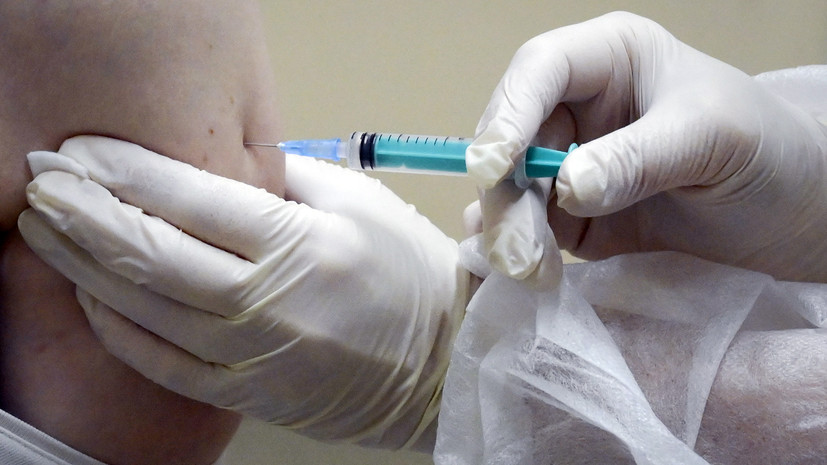A vaccine against coronavirus, developed by the Federal Scientific Center for Research and Development of Immunobiological Products named after M.P.
Chumakov of the Russian Academy of Sciences, may go into civil circulation in March, said the deputy head of the center for project activities and innovations Konstantin Chernov.
"Our (vaccine against coronavirus. -
RT
) to wait in civilian circulation, probably in the region of March," he said on the air of the TV channel "Russia 1".
Recall that the Chumakov Federal Scientific Center announced the start of clinical trials of its vaccine in early October.
Then the representatives of the institution said that we are talking about a whole-virion inactivated vaccine, in which the whole inactivated (that is, killed) SARS-CoV-2 virus was used.
The body is able to recognize and remember its antigenic composition and in the future, upon contact with the coronavirus, to react to all its manifestations, explained the general director of the center, Aydar Ishmukhametov, in an interview with Rossiyskaya Gazeta.
As Konstantin Chernov noted, now the second stage of clinical trials is in the final stage, in which the effectiveness of the vaccine is tested on volunteers.
“More than 50 different proteins have been found in the virus.
When we present to the body the whole spectrum of everything that is there, we expect that our protection will be more comprehensive, ”he said.
Currently, there are two coronavirus vaccines in circulation in Russia.
The first drug was Sputnik V from the National Research Center for Epidemiology and Microbiology named after Honorary Academician N.F.
Gamalei.
Later, the vaccine "EpiVacCorona" appeared, developed by the State Scientific Center "Vector" in the Novosibirsk region.
Over the past day, 23,586 new cases of coronavirus were detected in Russia.
Prior to this Friday and Saturday, the headquarters reported 24,715 and 24,092 cases of COVID-19.
To date, 3,568,209 cases of coronavirus infection are known in the Russian Federation.
Since the beginning of the pandemic, 2,960,431 people have recovered in the country, including 23,440 over the past day.
From complications caused by COVID-19 and related diseases, 65,566 people died.
During the day, the number of deaths increased by 481.
4,012 new cases of COVID-19 were detected in Moscow, 3,316 in St. Petersburg.
According to Rospotrebnadzor, over the entire period, over 96.6 million laboratory tests were carried out for a new type of coronavirus infection, including 478 thousand in the last day.
614 180 people remain under medical supervision.
Meanwhile, the spread of the Russian Sputnik V coronavirus vaccine in the world continues.
The drug has already been registered in Serbia, Argentina, Belarus, Bolivia, Algeria, Palestine, Venezuela and Paraguay.
Registrations are expected in two more countries next week.
The Russian Direct Investment Fund (RDIF) has denied reports that the Brazilian National Regulatory Authority has rejected a request from RDIF and Uniao Quimica to register an emergency vaccine.
Earlier this was reported by the media.
The Foundation said that the information about the refusal to accelerate registration of the Sputnik V vaccine, which appeared in the media, is unreliable.
The RDIF clarified that the Brazilian National Health Monitoring Agency (ANVISA) has requested additional information about Sputnik V, which will be provided in the near future.
The message notes that the regulator's request for additional information is a standard procedure and does not mean a refusal to register.
"The Brazilian Congress also approved a law pending in the Brazilian Senate, which, if passed, would automatically allow the use of a vaccine registered in several countries, including Russia, in Brazil," the foundation said.
The RDIF added that "as part of the disinformation campaign against the Sputnik V vaccine, false information is deliberately disseminated at night and on weekends to complicate the verification process."
“The press service of the RDIF works around the clock and asks journalists to check the information before it is published in order to avoid spreading false information,” the fund said.

